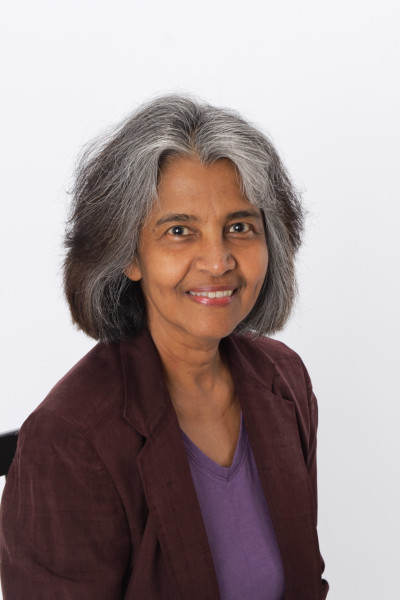
# Please introduce yourself and your book(s)!
I am Yasmin Azad. I was born in Sri Lanka (a little island near India) and grew up in a traditional Muslim community. I moved to the United States over 40 years ago, in my late twenties. I was the first girl in my family to go to university and my book, “Stay, Daughter, ” is a memoir about what happens when females who are supposed to stay in the innermost rooms of their houses start to go out. Though it’s the tale of one family, it tells a universal story— the conflicts and struggles that come up when girls go against tradition, and how families that at first might resist their fight for independence might eventually come around to supporting them.
# What is/are the real-life story(ies) behind your book(s)?
The real-life story is of my grandmother, who descended into poverty when she became a widow because she had never been to school and didn’t know how to negotiate the legal world. Also, the story is that of my mother, who loved reading but couldn’t access any books after she was taken out of school in the third grade, and my story, where I had to fight oppressive rules and traditional customs to be the first girl in my family to go to university.
# What inspires/inspired your creativity?
When I left my traditional Muslim community and immigrated to the United States, I didn’t just move from one country to another, I moved from one world to another. The ways in which people interacted with their families, their friends and neighbors, how they raised their children, etc. were so different, and it inspired me to observe and record that in writing. I was a mental health counselor for 25 years and have an intense interest in the ways that culture impacts human behavior.
# How do you deal with creative block?
Instead of writing on a computer, I free-write with pen and paper. By free-writing I mean writing as though I am having a conversation with myself. There’s no rules and no criticism. That frees me to keep going. I can always revise later.
# What are the biggest mistakes you can make in a book?
If you are writing a memoir as I did in “Stay, Daughter,” it would be to simply state what happened, as in “This happened, then that happened, then that happened,” without looking for the meaning behind those events. A book needs to be shaped around a unifying theme, with the author telling us “This is how I interpret these events.” The biggest mistake in a memoir would be a string of happenings without a larger meaning.
# How do bad reviews and negative feedback affect you and how do you deal with them?
There are two types of bad reviews. 1) From readers who want a different writing style because that’s their preference. I ignore those. 2) From readers who did engage with the book, but thought it fell short in some way. I pay attention to what those readers have said and keep their comments in mind as I write my second book.
# How has your creation process improved over time?
I’ve read dozens of books on the craft of writing, worked with writing teachers and participated in writing workshops. That and practice, practice, practice, has helped to improve my writing.
# What were the best, worst and most surprising things you encountered during the entire process of completing your book(s)?
The best was having a literary agent and a traditional publisher’s take on my book during the publishing process. The most surprising thing was how many books are published every year. The statistic is something like a new book coming on Amazon every five minutes. The worst is related to that statistic. It takes a lot of effort, an immense amount, for new authors to make their book known to the public.
# Do you have any creativity tricks?
If you are finding it difficult to begin, pretend that you are not actually writing but just telling the story to someone you feel entirely comfortable with. Or even that you are telling the story to yourself. Once you have that “conversation” down, you can revise it as many times as you like. As it’s been said, you can revise a first draft no matter how many shortcomings it has. You cannot revise a blank page.
# What are your plans for future books?
I am writing a novel about something I am passionate about. I have a first draft and am in the process of revising it.
# Tell us some quirky facts about yourself
I am a great fan of books written by women over a hundred, or even two hundred years ago, and I read them over and over again, like people listen to the same music over and over again. I am embarrassed to say how many times.
Website